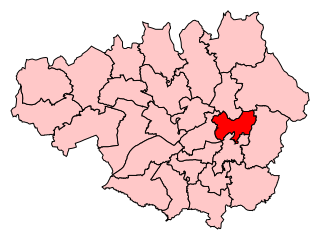
Ashton-under-Lyne is a constituency in the House of Commons of the UK Parliament. It has been represented since 2015 by Angela Rayner, who has served as Deputy Leader of the Labour Party since 2020.
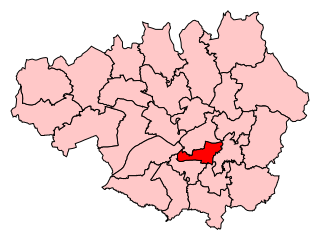
Manchester Gorton is a constituency represented in the House of Commons of the UK Parliament by Labour's Afzal Khan, who was elected at the 2017 general election. It is the safest Labour seat in Greater Manchester by numerical majority and one of the safest in the country.
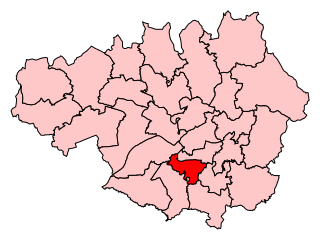
Manchester Withington is a constituency represented in the House of Commons of the UK Parliament since 2015 by Jeff Smith of Labour. Of the 30 seats with the highest percentage of winning majority in 2017, the seat ranks 25th with a 55.7% margin, and is the only one of the twenty nine of these seats won by the Labour Party in which the second-placed candidate was a Liberal Democrat, rather than Conservative. This is despite being a Conservative seat right up to 1987, then becoming relatively safely Labour, then Liberal Democrat from 2005 to 2015 before they lost on a large swing in 2015, after which Smith substantially increased his majority.
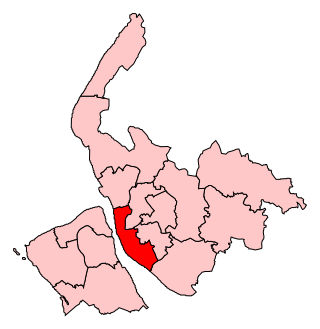
Liverpool Riverside is a constituency represented in the House of Commons of the UK Parliament since 2019 by Kim Johnson, who is a member of the Labour Party.
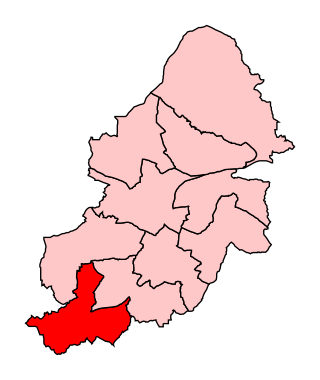
Birmingham Northfield is a constituency represented in the House of Commons of the UK Parliament since 2019 by Gary Sambrook, a Conservative. It represents the southernmost part of the city of Birmingham.

Hackney South and Shoreditch is a constituency represented in the House of Commons of the UK Parliament since 2005 by Meg Hillier of Labour Co-op.

Hove is a borough constituency in East Sussex represented in the House of Commons of the UK Parliament since 2015 by Labour's Peter Kyle.
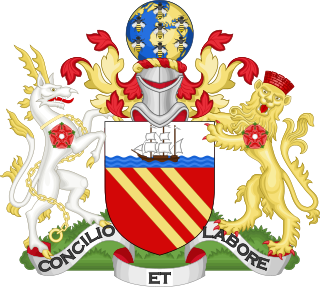
Manchester City Council is the local authority for Manchester, a city and metropolitan borough in Greater Manchester, England. Manchester is the sixth largest city in England by population. Its city council is composed of 96 councillors, three for each of the 32 electoral wards of Manchester. The council is controlled by the Labour Party and led by Bev Craig. There is currently no official opposition as the two opposition groups, the Green Party and the Liberal Democrats both have four councillors. Joanne Roney is the chief executive. Many of the council's staff are based at Manchester Town Hall.

St. Helens South and Whiston is a constituency created in 2010 represented in the House of Commons of the UK Parliament by Marie Rimmer of the Labour Party.

Dagenham and Rainham is a constituency represented in the House of Commons of the UK Parliament by Jon Cruddas of the Labour Party since its 2010 creation.

Blackley and Broughton is a constituency represented in the House of Commons of the UK Parliament by Graham Stringer. He was first elected in 1997 for the former Manchester Blackley and prior to this was Leader of Manchester City Council. The constituency covers north Manchester and east Salford.
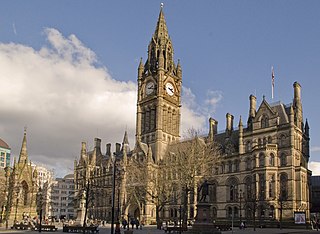
The City of Manchester forms part of the metropolitan county of Greater Manchester, which had its county council abolished in 1986. Manchester consists of several districts, but these districts do not represent a tier of government.
Manchester Moss Side was a parliamentary constituency in the Moss Side area of the city of Manchester. It returned one Member of Parliament (MP) to the House of Commons of the Parliament of the United Kingdom, elected by the first past the post system.
Manchester Rusholme was a parliamentary constituency centred on the Rusholme district of Manchester. It returned one Member of Parliament (MP) to the House of Commons of the Parliament of the United Kingdom, elected by the first past the post system.

Ancoats and Beswick is an electoral ward of Manchester, England created by the Local Government Boundary Commission for England (LGBCE) replacing the previous electoral wards of Ancoats & Clayton and Bradford for the local elections 2018.

Elections to Manchester City Council were held on 6 May 2021, as part of the 2021 United Kingdom local elections. They were originally scheduled for 2020 but were suspended for a year, due to the COVID-19 pandemic. In 2019 Labour had retained its majority on the council, with 93 seats, with the Liberal Democrats led by former MP John Leech increasing the number of opposition councillors to three, but this had fallen back to two in March 2021 when Councillor Greg Stanton defected to the Labour Party.
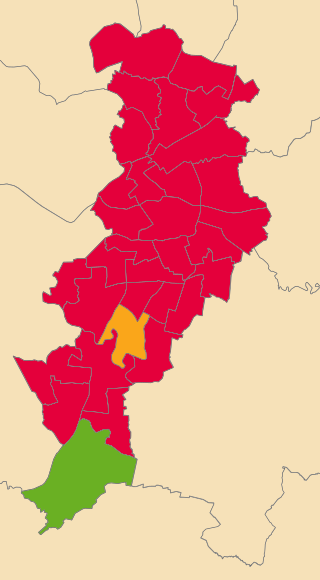
The 2022 Manchester City Council election took place on 5 May 2022. One third of councillors on Manchester City Council were elected. This election was a part of the other local elections across the United Kingdom.
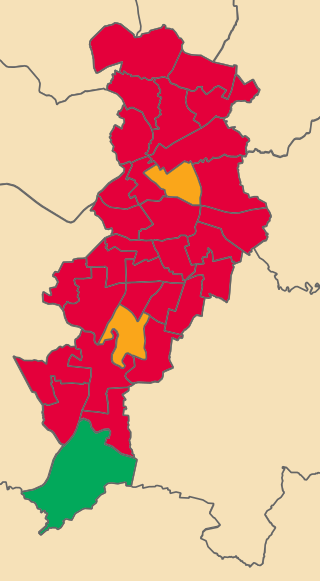
The 2023 Manchester City Council elections took place on 4 May 2023 alongside other local elections across the United Kingdom. One third of councillors (32) on Manchester City Council were elected, along with a mid-term vacancy in the Ardwick ward.



















